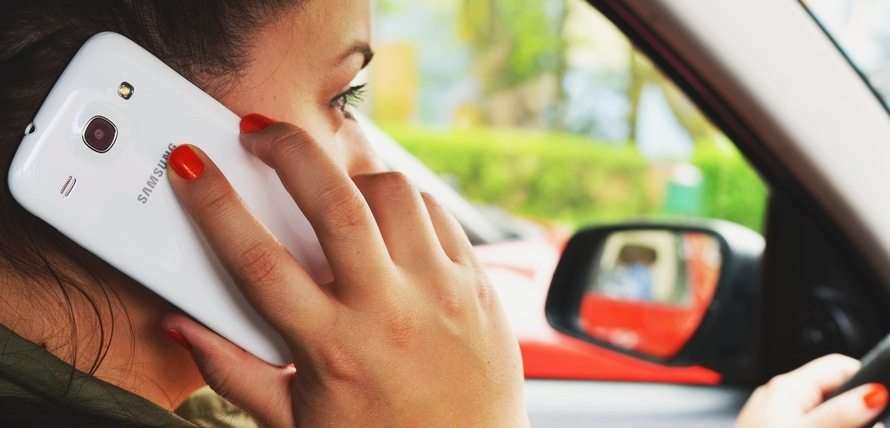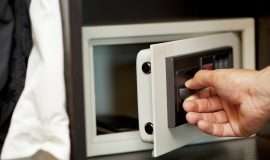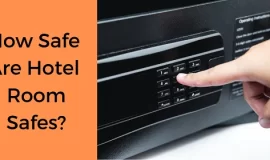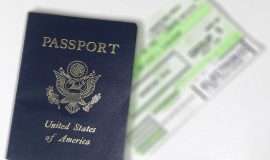Even the most careful driver can be faced with an emergency situation. If the emergency happens in an unfamiliar area or at night, it becomes even more stressful. Don’t panic and start to gather as much information about your situation. Also planning ahead of time what you can do to stay if your car breaks down will help get you through the situation with less fear and stress.
Take Note of Your Location
- Know where you are in relation to cross streets, or if on a highway an off-ramp or mile marker.
- Get off the roadway, or pull to the side, even if you do have to drive on a flat tire. The tire is replaceable. Stay visible.
- Turn on your emergency flashers. If you have emergency roadway flares in your trunk, position them conspicuously, do this only if it is safe.
- Raise the hood and tie a handkerchief to the aerial or door handle, only exit the vehicle if you feel it is safe to do so.
- Use your cell phone to call for help. Make the call from inside your locked vehicle if you are safely out of traffic. Otherwise, do so at a safe distance from the vehicle and roadway. Have your roadside assistance phone number entered in your phone contacts and have a printed copy of it in your glove box.
- If a roadside telephone or call-box is handy, use it. If not, sit in your locked car and wait for help.
- If a motorist stops to render assistance, it’s better to remain in the car and ask him to call for or get help. You can use your phone camera to record the conversation (Likewise, if you see a stranded motorist, it is best to notify the police via phone than it is to approach the car.)
If You Think You are Being Followed, Don’t Drive Home
- Driving home will only tell the follower where you live.
- Drive to an already identified safe spot. Once there sound your horn and flash your lights. Do not leave this safe location until you’re sure your follower is gone. Suggested safe spots are police stations, fire stations, public and well-lit places. Do not engage whoever is following you and keep your doors locked. Assess if you need to call 911 to protect yourself from a threat.
- Flash your lights and sound your horn long enough to attract attention to you and consequently, the person following you. Your goal is for him to leave. If you are stopped and not driving take a photo or video using your phone.
- Remember, your common sense is your best protection.
Protecting Yourself
- Always drive with your car doors locked and windows up far enough to keep anyone from reaching inside.
- At stop signs and signals keep the car in gear and stay alert.
- Travel on well-lit busy streets. You can spare those extra minutes it may take to avoid an unsafe area.
- Keep your purse and other valuables out of sight, even when you are driving in your locked car. It is better to place them on the floor than the seat.
- Always lock your car, even for a short absence. And before unlocking your parked car, quickly check to make sure no one is hiding in the vehicle.
- Never pick up a hitchhiker. Even the most harmless-looking stranger can be dangerous. Don’t find out.
- When you arrive home, leave your headlights on until you have the car in the garage, and the house door unlocked. If you can have a remote control garage door opener installed, it will allow you to remain in your locked car until your garage door closes.
- Check the daily routes you travel and pick out safe spots-24 hour gas stations, convenience stores, and police and fire stations. If trouble should arise, drive straight to one of these locations.
Choose your parking space wisely
- In airport parking lots I recommend parking in view of the exit pay booths, parking lot office, or within view of a shuttle pickup location or kiosk. The increased traffic at these locations will discourage potential thieves. Well-lit areas are next best location; most airport lots have surveillance cameras in place, so making it easier for an attendant to see your car on a grainy camera will help.
- Park “trunk out.” If you are storing items in your trunk, you will want to point the trunk out into the lot aisle, where more people can see anyone trying to break in. Don’t give thieves the opportunity to use your car as cover while ripping you off.
- When parking on the street, try to park within sight of a busy store or hotel entrance, under a street lamp, near a busy corner or out in the open away from things that might provide shelter to a thief (like thick or low-hanging trees). The busier the street, the better.
- Remove or lock up items such as GPS units, accessories for your cell phone or MP3 player, a loose E-ZPass apparatus – to remove temptation.
- Similarly, visual cues that might deter a thief can be critical – even if they are just for show. Things like a steering wheel lock or a blinking alarm system light will inspire thieves to move on to the next vehicle, even if you don’t have the alarm activated.
- A neat car is less likely to get broken into.
- A car that is filled with jackets or beach towels that appear to be covering items of value, or that has wires sticking out here and there suggesting that electronic devices may also be stowed, are much more likely to attract interest. If a potential thief sees nothing but car upholstery, he or she is less likely to be curious about what might be hidden in the car.
- Check for your valuables as soon as you return to your car.
- If you have any suspicions, you will want to make sure nothing was stolen before you pull out. If your car does get ripped off, you want to figure it out at or near the location the theft occurred in case you have to file a complaint. When surveying your vehicle, keep in mind that thieves know what to take- often items you won’t notice until you are long gone. For example, a common tactic is to take a camera out of a camera bag, but leave the bag behind; it looks like it was undisturbed so you won’t figure it out for hours or days.
Rent wisely
When renting a car, keep the following tips in mind:
- Rent models that are not easily exposed or broken into and that have a trunk big enough to store anything you want to secure. A hip convertible style car sounds like a great idea, but it is easier to break into than a hard top.
- The more modest and nondescript the rental model, the less likely to attract attention it is.
- Don’t leave your rental contract in the car, as this document has just about all the information you will need if the car is stolen – and also all the information a thief will need to evade detection if he or she is stopped for any reason before you report the vehicle as stolen.









